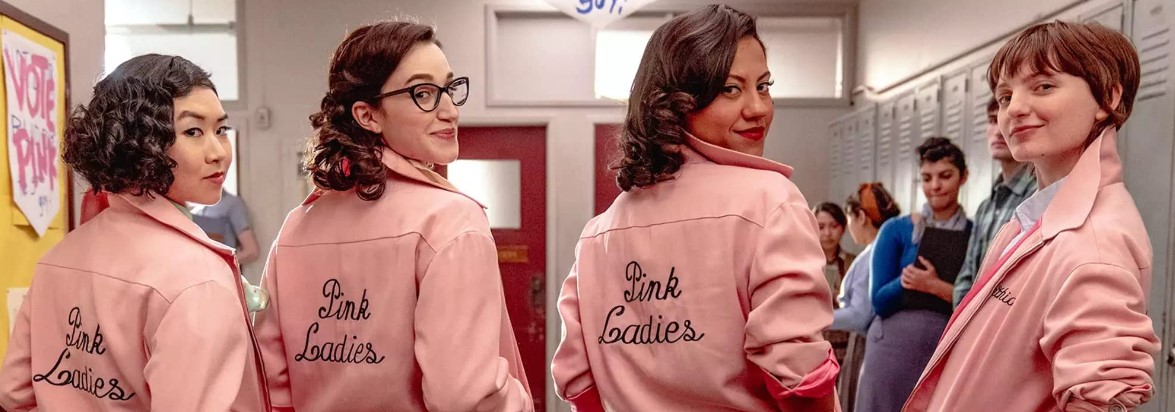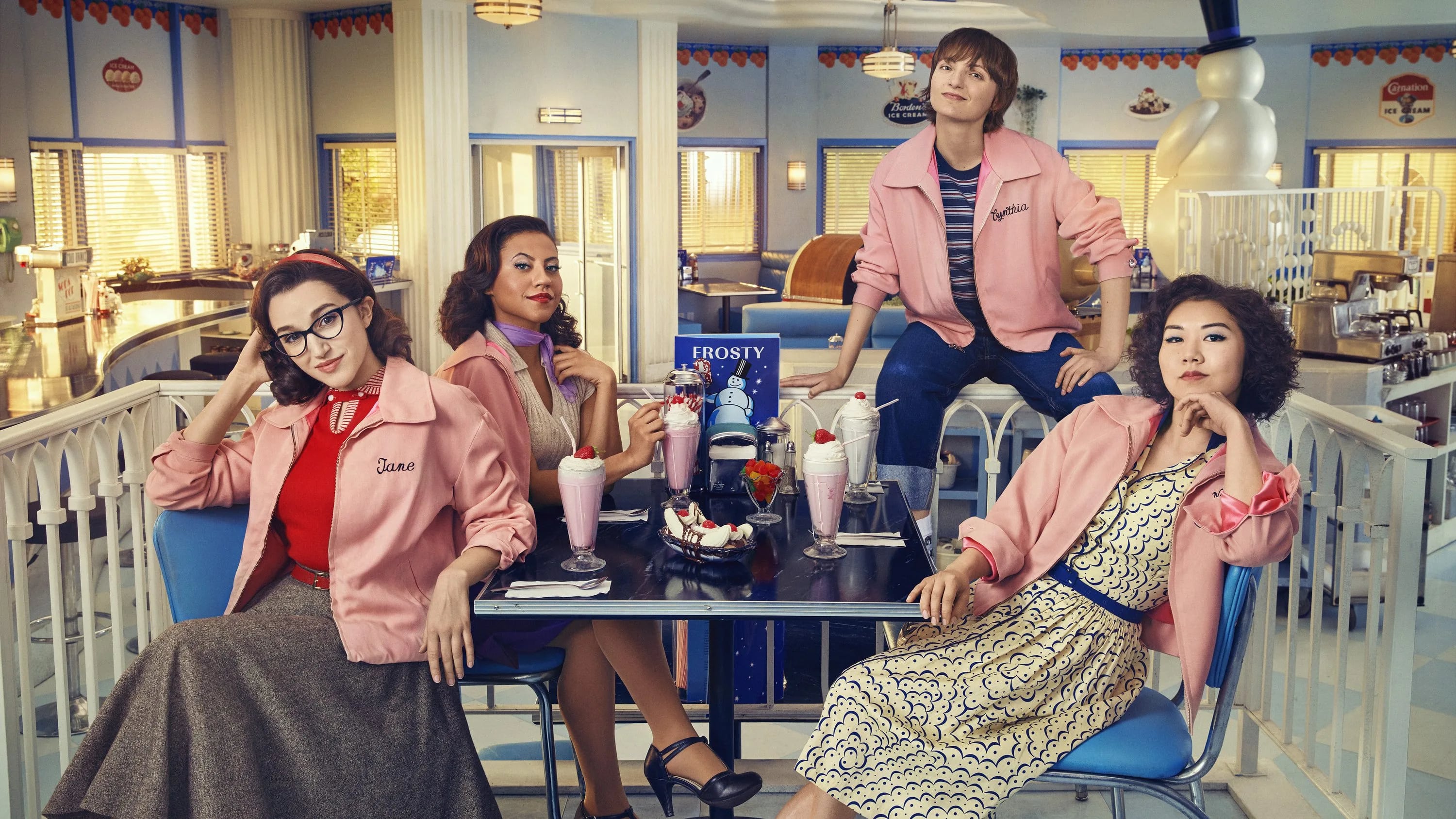Created by Annabel Oakes, ‘Grease: Rise of the Pink Ladies’ is a Paramount+ musical teen comedy series. The plot revolves around four young outcasts — Jane Facciano (Marisa Davila), Olivia Valdovinos (Cheyenne Isabel Wells), Cynthia Zdunowski (Ari Notartomaso), and Nancy Nakagawa (Tricia Fukuhara) — attending Rydell High. Jane, the archetypical good girl with plans to become a student council member, suddenly finds herself subjected to a scandal. Olivia dealt with something similar a year ago involving a teacher. Cynthia is the quintessential tomboy and wants to be part of the T-Birds, but they ultimately reject her despite proving her worth. Nancy, who aspires to be a fashion designer, loses her two closest friends after they start dating.
These four girls come together and form a clique, changing the student dynamic at their school forever. If the depiction of student life in ‘Grease: Rise of the Pink Ladies’ has made you wonder whether it is based on true events, we got you covered.
Crafting the Pink Ladies: A Fictional Story
No, ‘Grease: Rise of the Pink Ladies’ is not based on a true story. Instead, it is related to the 1978 film ‘Grease’ starring John Travolta and Olivia Newton-John, serving as its prequel. According to the narrative of the series, it is set four to five years before the events of ‘Grease’ in 1954. ‘Grease: Rise of the Pink Ladies’ is slated to depict how Jane and her three friends established the Pink Ladies, the clique Newton-John’s Sandy is part of in the original film.

Director Randal Kleiser developed ‘Grease’ from a screenplay by Bronté Woodard and an adaptation by Allan Carr of the namesake musical by Jim Jacobs and Warren Casey. The film derives its name from the Greasers, a working-class youth subculture in the US in the 1950s. ‘Grease’ is not only regarded as one of the greatest musical films of all time, but also the original is considered one of the greatest stage musicals of all time. So, it was an uphill task for Oakes and her team to make the audience believe that a show like this was needed.
“We love ‘Grease.’ We refer to it as the mothership, and we always go back to it,” Oakes stated while attending a panel discussion at the 2023 Television Critics Association Winter Press Tour. “It was made in a time, and it was commenting on another. So, ‘Grease’ was the ‘70s commenting on the ‘50s. They were telling really subversive, funny songs and stories about the ‘50s from the ‘70s point of view. Now we’re in the 2020s and we get to comment on what they said in the ‘70s and the ‘50s, which is a cool experience.”
The series creator also admitted that there were problematic elements in the original project, hinting that they found their way around the said elements. “Yeah, there are some lyrics that are problematic. As you see, we reference those in the pilot and other dialogue. You’ll see us start to reference … to try to open up the world of ‘Grease’ and the lens of ‘Grease’ through taking a deeper look at those and getting other people’s perspectives,” she explained.

Justin Tranter, Nick Sena, and Zachary Dawes serve as music composers on ‘Grease: Rise of the Pink Ladies.’ The first season of the series has about 30 songs, which Tranter penned with Brandon Colbein and Brittany Campbell. “Movie musicals are the reason why I even understood that music was a thing, that I was ever interested in music,” Tranter told Consequence. “Of course, my parents are listening to rock and roll at all times. But it was movie musicals that made my brain go, ‘Oh, music is f[expletive]ing awesome.’ So ‘Grease’ was for sure one of those movies, and it was the Pink Ladies that made me really obsessed. So to know that there was going to be a show that was about the origin story of the Pink Ladies is why I got so excited about this.”
So, to sum it up, ‘Grease: Rise of the Pink Ladies’ is not based on a true story. It is actually prequel series of a Hollywood classic, which itself is based on a stage musical.
Read More: Grease: Rise of the Pink Ladies Episodes 1 and 2 Recap and Ending, Explained


You must be logged in to post a comment.